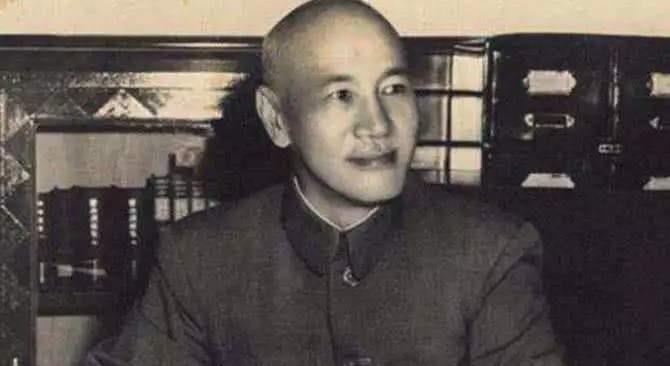The first-class general in the Nationalist army, also known as the four-star general, is the highest rank in the Chiang Kai-shek clique, in addition to the first-class general, there is also a special general, this rank in the Chiang Kai-shek clique only enjoys this rank, no one else wants to think about it.
In fact, the rank of first-class general was only enjoyed by high-level personnel of the Nationalist Army, such as Chen Cheng, He Yingqin, Yan Xishan, Li Zongren, Bai Chongxi, and others, all of whom enjoyed the title and treatment of the first-class military rank before they died.
In addition to the above people, there are also some generals in the national army, they were posthumously awarded the first rank of generals, today we will take a look at it together, who are they? After his death, he was posthumously awarded the first rank of general by Chiang Kai-shek!

The first was Liu Xiang, the king of Sichuan, who was a famous warlord in Sichuan during the Republic of China, who launched countless large and small civil wars in Sichuan, and became the king of Sichuan in the classic battle to pacify Sichuan. However, Liu Xiang was very national, and after the outbreak of the War of Resistance, he was the first to make a statement that he was willing to pay money and send troops to support the cause of the War of Resistance, and personally led the troops out of Sichuan to resist the War. Unfortunately, Liu Xiang was exhausted by his long career as a horseman, and he died in Hankou on January 20, 1938. Although he died, his last words inspired countless Sichuan army generals: "Resist the war to the end, always unswerving, that is, the enemy army will not retreat to China for a day, and the Sichuan army will not return to its hometown for a day!" ”。 This sentence also became the spiritual pillar of the sichuan army soldiers, and later Chiang Kai-shek, in order to praise his merits, posthumously awarded the first-class general.
The second was Song Zheyuan, a general of the Northwest Army, who was one of Feng Yuxiang's Five Tigers in the Northwest, and also one of the five tigers mixed well after the dissolution of the Northwest Army, serving as the commander of the 29th Army of the National Revolutionary Army, and several of his division commanders, who later became famous anti-Japanese generals, such as Zhang Zizhong, Feng Zhi'an, Zhao Dengyu, Liu Ruming, Tong Linge, and other famous generals of the War of Resistance, were all generals under Song Zheyuan, and the 29th Army also participated in the Great Wall War of Resistance and the July Seventh War of Resistance under his leadership, which was called a heroic unit by major domestic newspapers. Then there was such a hero of the War of Resistance, who died of illness in 1940, and in order to praise his early achievements during the War of Resistance Against Japanese Aggression, he was posthumously awarded the title of General of the First Class.
The third is Chen Tiaoyuan, the elder of the Three Dynasties, who is a legendary figure who was mixed in the three different periods of the late Qing Dynasty, Beiyang and the Republic of China, and they were all like fish. During the Beiyang period, he defected to Feng Guozhang, and by virtue of his ability, he was a lieutenant general, a capable general of the Jiangsu overseer Qi Xieyuan. However, after the outbreak of the Jiangsu-Zhejiang War, he turned to Sun Chuanfang, and finally to Chiang Kai-shek, who also belonged to a defective general. Although he has defected many times, he is generous, coupled with his meeting with the wind and rudder, and his smooth handling, so that every time he changes masters, he is reused, including turning to Chiang Kai-shek. However, after participating in the encirclement and suppression, the Red Front was relieved of military power after the defeat, and from then on, he was transferred from the front to the rear to serve as a civilian until his death in 1944, when he was posthumously awarded the rank of general of the army by Chiang Kai-shek.
The next two, they are not members of the Chiang Kai-shek clique, and one of the great warlords of the Beiyang period also served as president, they are Cao Kun in the fourth place and Wu Peifu in the fifth place.
Especially Wu Peifu was once evaluated as the strongest Chinese at that time, and he was also on the cover of the Top Ten Weekly Magazines in the United States, and was evaluated as the beiyang warlord with the most ability to unify China. Although these two were great warlords of the Republic of China period, they also killed many people when they launched civil wars, especially the two Zhifeng Wars, and they do not know how many families were destroyed and how many people died.
However, after the outbreak of the War of Resistance Against Japanese Aggression, although they were all in hiding at that time and were no longer the heroes of the year, the Japanese army asked Cao Kun and Wu Peifu to go out of the mountains to preside over the work, but they were all rejected, saying that they would rather die than be traitors, and they maintained the late festival in order to safeguard the national righteousness, so after the death of these two people, Chiang Kai-shek posthumously awarded them as first-class generals.